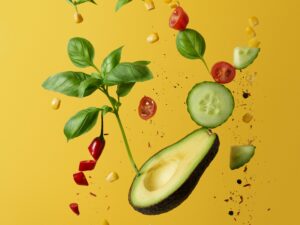This is What Sugar Does in Your Body – Should We Avoid Sugar?
Sugar, aka glucose, is a source of energy. It is easy to break down by the body and can give you a lot of fuel at a fast pace. But what does too much of it do to the body?

When this energy is not used immediately, it is stored as fat, part of the reason excess sugar consumption has been linked to obesity. Furthermore, the body actively works to process and reduce glucose, and constant or excessive consumption can lead to serious problems.
Sugar and Insulin in the Body
When we consume sugar, insulin is released in the body to move it where it needs to be.
Since we tend to snack constantly, there is a constant influx of insulin in the system. What happens when you are constantly eating foods that have sugar, carbs, and additives? You start needing more and more insulin to process the same amount of sugar.
Your body is never given a chance to level out. This can lead to a variety of metabolic problems such as insulin resistance. This is when cells fail to respond to insulin which later leads to type 2 diabetes.
Additionally, the constant activity of insulin prevents growth hormone (GH), from being released in the body. GH is a hormone that stimulates cell reproduction, repair, and regeneration. It causes the growth of all tissues in the body, increasing fat breakdown and protein synthesis.
Added Sugar
More problems come as sugar is placed into many savory snacks and products that aren’t even sweet. People eat sugar/carbs without realizing it, as it has many pseudonyms and is placed in hundreds of foods you wouldn’t suspect.
When I tried a low-carb or keto diet, I was so surprised that sugar was in everything!
Sugar has over 50 different names, and is added to savory food as well as sweet. Below are just a couple of examples.
List of Sugar Pseudonyms
- Dextrose
- Lactose
- Fructose
- Sucrose
- Maltose
- High fructose corn
- Glucose
- Dextran
- Agave Nectar
- Maltodextrin
- Ethyl Maltol
- And Many More!
It’s found in soups, sauces, condiments, and much more! Check out the full list here.
Dangers of Sugar
Things thought to be healthy like fruit juice, contain none of the original fiber and have added sugars and chemicals that do just as much harm as soda.
A can of cola, for example, has 140 calories and 40 grams of sugar (about ten teaspoons).
Compared to a serving of juice?
Apple juice contains 165 calories and 39 grams of sugar (about 10 teaspoons). A child should only be consuming maybe 2 teaspoons of this sweet treat a day if that.
Sugar Leads to Inflammation
Sugar also causes blood spikes that cause drastic mood changes and induces inflammation in the body.
Inflammation is a natural response to protect the body and fight off microbes, it is normal. The inflammation caused by too much sugar however can lead to long-term health problems like heart disease, as the body attempts to repair damage caused to arteries.
Sweetener Alternatives
Alternatives to simple granulated sugar include substitutes. Some of the most common are erythritol, stevia, Splenda (sucralose), monk fruit, allulose, and many more. Some of these sweeteners come from natural sources, while others are made artificially.
Furthermore, some can cause unintended side effects. For example, Splenda may reduce good gut bacteria while something like monk fruit may increase good gut bacteria. It is important to do thorough research when trying new products out.
Luckily, the information is easy to find! Check out this complete list to know what is safe to eat, and what is best avoided!
The Takeaway
While we don’t have to cut sugar out of our diet completely, we should attempt to limit it. It has side effects including insulin resistance, and inflammation when consumed in excess. There are many hidden sugars in foods that are not even sweet, making it easy for someone to overeat them.
While it is not the best source of nutrition, as it is often called empty calories due to its lack of nutritional content, it can be eaten in moderation. There is also the option of eating sweetener substitutes as well but make sure you know which are safe and which should be avoided.
In fact, monk fruit extract is about 200 times sweeter and may be beneficial to gut bacteria. In contrast, artificial sweeteners like sucrose may be detrimental to gut health. Take note of your nutrition and diet to ensure your wellbeing flourishes.





